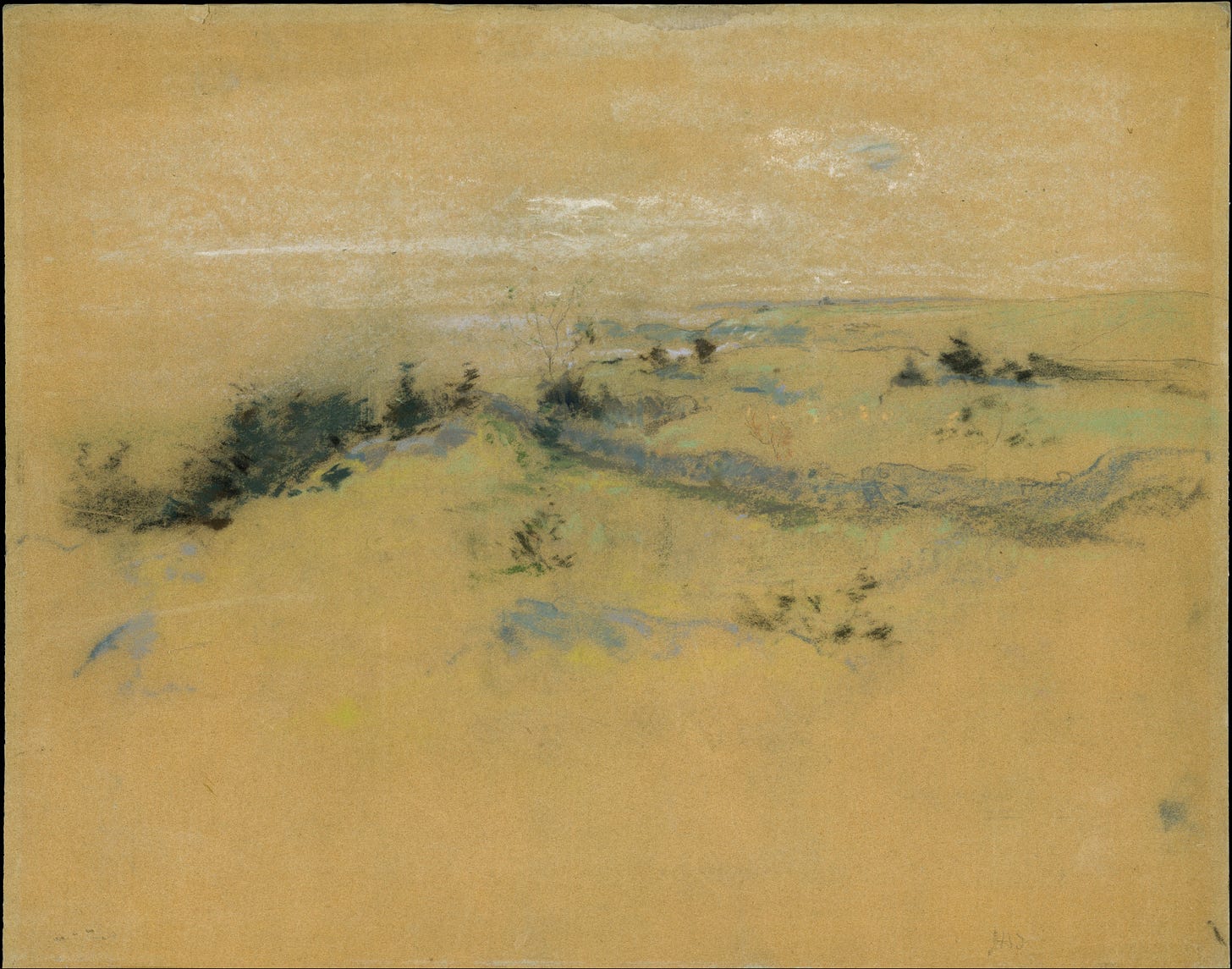A Burning Candle
A story about light and darkness.
I was between tall pillars in an empty place. The pillars were carved with forms and patterns and faces, and weathered, like an ancient temple. Temple walls told stories once, for people without letters, as have the windows of cathedrals, and the gait of tracks left in heavy snow. These pillars, though, will tell me nothing. They do not speak my language, if they speak at all. I can recognize, projected over their curve, lines and shapes which resemble things I know I’ve seen – a bird, a pointed spear, fire on the earth – but I can find no structure in them, no meaning. I lack the key with which to unlock their truth, if such a key exists. I can only walk between them, down the vaunted hall, and as I walk, my feet scrape against the floor. The light is dim. It seems to come from everywhere at once, and nowhere. On either side beyond the pillars, darkness curls up and inwards like a tattered parchment. The ceiling of this place, if it has one, if the pillars do not simply extend upwards to infinity, is hidden far above. Far above. When I look up, the pillars fade away towards it. If, again, it’s really there at all.
I had lived for a time in a region of the world where it never got warm enough to open the windows. Even in the height of summer, the chill could still cut through you if it caught you by surprise, could still suck the air out of the room. This was a problem because the house I lived in was an old house, where many people had already died, and without an open window, there was nowhere for their ghosts to go. The air was always stale and stuffy, and full of murmuring. I learned quickly not to leave anything too close to a table edge; it was almost guaranteed that it would fall, and that it would break if it could be broken. In this manner I lost a porcelain figurine of a child in nightcap and pajamas, one hand outstretched, feeling his way through the dark, the other clutching a candleholder from which the candle was absent. It was my only memento from a life which I had left behind. I collected the fragments and put them into a small velvet pouch, which I carried with me until one night when I awoke to see it being lifted from the table at my bedside. The thief was an elderly woman without lips or eyelids. I shot up, and attempted to stop her, but she drifted through a wall and was gone. When I told my neighbor about the incident, he told me that she had been the last of her line, without any living relatives, and after she had died, it had been more than a week before her body was discovered. In the meantime, her cat, trapped behind closed windows and locked doors, had resorted to the obvious. At night, in those days, I would often sit and watch a TV station which broadcast nothing but the image of a roaring fireplace. I would sit like this for hours, until the sun surprised me by coming up. Around the holidays, there would always be wreath of spruce trimmings fixed to the mantel. At other times, the stone would appear entirely unadorned.
I came out from between the pillars in the empty place into a cramped farmhouse kitchen. A pan of grease sat on the stove sizzling. There was low, blue heat. A husband and wife sat at the table, arguing.
“I feel like you’re not even hearing what I’m saying,” he said.
“I wish I wasn’t,” she replied.
They stared furiously at each other. I went to the window. It was night outside. Dogs barked. I could see a lantern sitting on a fence post about a mile away, at the edge of the property. Several years ago, in the middle of dinner, the wife’s father had gotten up and left the table without a word. It was the last anyone had seen of him. Since then, she had started putting a lantern out each night, always on the same fence post, to help him find his way back in the dark. I had read all about this in the newspapers. It was heavily reported at the time, all around the world. Later, I read that the couple no longer wished to see the wife’s father return. It was reported that they even feared what it might mean if he did, after having been gone for so long. Nonetheless, the wife still placed the lantern on the fence post each evening, and ensured the flame burned until the first light of dawn. It was a part of her life which she no longer felt she could change. As I watched, a car came speeding down the road, headlights weaving drunkenly. As if pulled by a magnet, the car swerved into the post on which the lantern sat, knocking it forwards, onto the hood. The glass shattered, and the flame spilled out and quickly engulfed the car. It burned for a long time, and black smoke went into the night.


